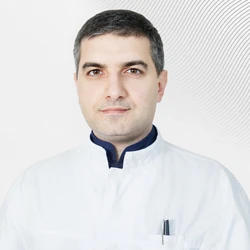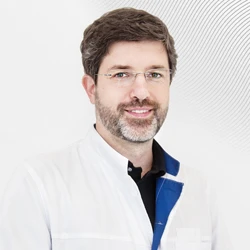In the EMC, choosing a drug for cancer treatment based on a genetic analysis of the tumor has become the norm. All types of molecular genetic tests are performed in the laboratory that can predict the effectiveness of therapy, help the doctor choose the drug necessary for a given patient and, by prescribing "targeted" (targeted) treatment, cure the patient, or, if the disease is already at a late stage, increase his life expectancy.
Cancer is often referred to as a "genome disease", thereby emphasizing that this disease is based on various genetic "breakdowns" of cells. Unfortunately, anyone can get cancer, and the genetic defects in the tumor will vary from person to person. This means that for successful cancer treatment, it is necessary to conduct a genetic analysis of cancer cells, as it is commonly said today, to study the molecular "portrait" of the tumor, since the personification of cancer treatment can significantly increase the effectiveness of the fight against this disease.
At the European Medical Center, choosing a drug for cancer treatment based on a genetic analysis of the tumor has become the norm. All types of molecular genetic tests are performed in the laboratory that can predict the effectiveness of therapy, help the doctor choose the drug necessary for a given patient and, by prescribing "targeted" (targeted) treatment, cure the patient, or, if the disease is already at a late stage, increase his life expectancy.
Targeted treatment differs favorably from chemotherapy in that it practically does not damage healthy cells and tissues of the body, affecting only a given "pathological" gene. This type of treatment is also very convenient because medications can be taken at home, as these medications are often available in tablet form.
For example, for the treatment of breast cancer, it is necessary to know whether sex hormone receptors are present in the tumor (analysis for the expression of estrogen and progesterone receptors). If the receptors are detected, the patient needs hormone therapy. In addition, a special HER2 receptor is detected in the tumor, which makes breast cancer sensitive to the drug herceptin, and such patients must necessarily be treated with this medication.
For the treatment of lung cancer, it is necessary to examine the tumor in our laboratory for EGFR, ALK receptors. These are small molecules that deliver intracellular signals that cause tumor cells to divide and grow rapidly. To block these receptors, we can use a whole arsenal of new drugs – afatinib, cetuximab, erlotinib, crizotinib, pemetrexed.
For the successful treatment of other types of tumors, such as intestinal cancer, head and neck tumors, stomach cancer, and melanoma, pathomorphologists at the EMC Histological Laboratory will also compile a molecular "portrait" of the tumor, which will help clinicians choose the only correct type of treatment for this patient.
Thus, the EMC implements an individual approach to treatment, which increases its effectiveness. The molecular portrait of a tumor in each patient is its own unique set of genes and their mutations.
Was this information helpful?
Questions and answers
How to lose weight correctly
I am 53 years old, my weigh is 116 kg. In 1988, my metabolism was probably, disturbed following the first childbirth. I gained weight, and since then I have been trying to fight with it periodically. I eat a lot of sweets however glucose is now normal and it always was. With age, my legs and back started to hurt me,
it is hard to “move” myself. I have undergone an examination in the district hospital, but nothing special was found. What tests and examinations I should bring to the doctor to get a diagnosis and treatment? Thank you!
...more Unfortunately, doctors not always can find the cause of excess weight. But this does not mean that there are ways to deal with it. Of course, it is not easy, but you definitely should try! At the first consultation it is desirable to have blood tests results, obtained no more than 6 months ago, total cholesterol,
glucose, glycated hemoglobin. Notes in the diary of blood pressure for 1-2 weeks are also important. Most likely, the doctor will arrange some additional examinations at visit, but everything is very individual and it's better to discuss all details with the doctor personally. You surely have to bring the results of previous all examinations with you.
...more 
Novikova Polina
08 September 2016
Question about ultrasound
I am 36 years old. Thyroid gland ultrasound: topography: position is regular, the right lobe is enlarged W-24 mm, t-22 mm, l- 51 mm, the volume is 12.90 cm3, left lobe enlarged, W -23 mm, t-23 mm, l-56 mm, volume is 14,90 cm3, isthmus thickness is 5 mm, the total volume is 27.09 cm3, alignments are even,
echostructure is inhomogenous, echogenicity is normal, focal masses are not seen, lymph nodes are not seen, conclusion; ultrasound signs of diffuse changes in the enlarged thyroid gland. TSH 2.10 mcIU/ml (normal range 0.30-4.00). The doctor prescribed Iodocomb 50/150 for 3 months. I have been taking the medicine for 2.5 months, but TG does not seem to diminish in size and I feel discomfort (it’s like a need to stretch my neck). Whether the treatment prescribed is correct? Are any additional tests needed? Should I have my thyroid gland diminished for those 2.5 months or it is too early to talk about it? Thank you!
...more It's hard to advice any treatment by correspondence. The cause of the thyroid gland enlargement is still unclear based on the results provided. The most common cause is iodine deficiency and Iodocomb treatment is appropriate in this case. Another cause is a chronic autoimmune thyroiditis which requires different
treatment. Endocrinologists at EMC will advise you and decide on the types of treatment and necessary doses.
...more 
Russ Irina
08 September 2016
Arthrosis
My left jaw started to hurt me after giving birth. The pain was accompanied by a crunch, clicks, discomfort when chewing. Arthrosis was diagnosed at local institution. What should I do?
The symptoms of pain and the crunch may occur following precipitating factors. It can be a trauma of the maxillofacial area, ENT-organs infections, sitting with mouth open for a long time when visiting the dentist, hypothermia, overload. Perhaps, pregnancy and childbirth were such a factor in your case. The treatment
goal in arthrosis is to reduce the load in temporomandibular joint. Treatment depends on the cause or the complex of causes that triggered the arthrosis. This may be due to the anatomical mismatch between the articular head size and the glenoid fossa. This also can be due to the long-term overload resulted from irregular bite and muscle imbalance. If increased tone of the masticatory muscles has led to increased abrasion of teeth, method of treatment with the restoration of the chewing surfaces and cutting edges of all teeth is optimal. But before that, splint therapy (mouth guards) is mandatory, which ensures the optimal position of the articular heads in articular fossae. Treatment is designed depending on the cause of changes in the joint. If the irregular bite is present pre-treatment by the orthodontist may be worthwhile.
...more
Problems with teeth
I have a huge problem with my teeth - all the teeth were treated, metalless ceramics were fixed in some places, a few teeth need to be removed. The treatment was carried out abroad, but the caries problem was beyond control, despite regular professional hygiene and specially selected tools. What range of dental
examinations, in addition to specialist’s consultation, I can count on in EMC Moscow?
...more Various dental diagnostic methods are available in our Dentistry Department: computed tomography of all teeth of both jaws, which gives a three-dimensional image and allows the doctor to more accurately diagnose; orthopantomography gives a flat image of all the teeth; the targeted x-ray tooth image. Tooth extraction
is performed surgically, mostly under local anesthesia. Diagnostic and treatment methods are determined individually by the attending doctor on consultation. Thank you for your message!
...more
How soon I may drive after LASIC?
When can I ride a car after LASIK?
Eyesight recovery is quite fast. Visual acuity is almost completely restored next morning, and most people can drive a car and get to work.
.webp)
Elias Raid
08 September 2016





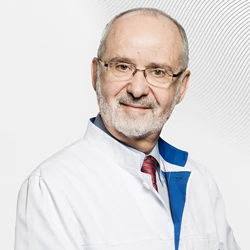

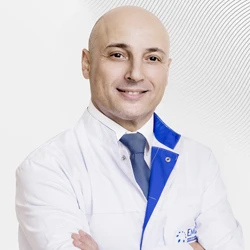

.webp)
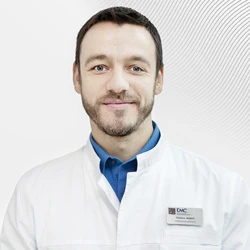
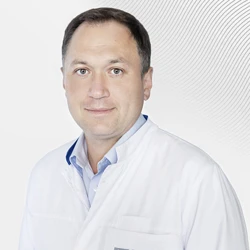
.webp)




.webp)

.webp)


